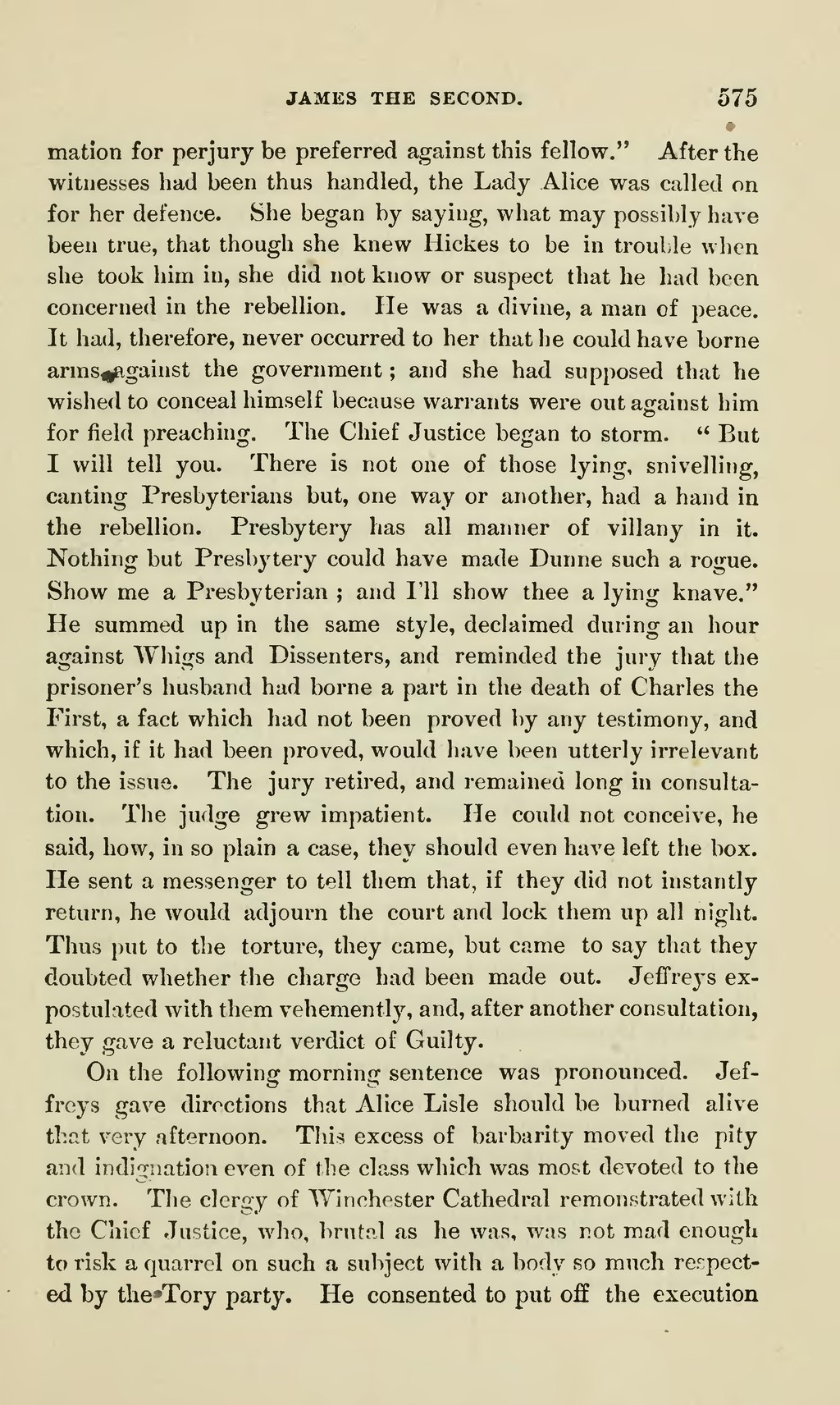mation for perjury be preferred against this fellow." After the witnesses had been thus handled, the Lady Alice was called on for her defence. She began by saying, what may possibly have been true, that though she knew Hickes to be in trouble when she took him in, she did not know or suspect that he had been concerned in the rebellion. He was a divine, a man of peace. It had, therefore, never occurred to her that he could have borne arms against the government; and she had supposed that he wished to conceal himself because warrants were out against him for field preaching. The Chief Justice began to storm. "But I will tell you. There is not one of those lying, snivelling, canting Presbyterians but, one way or another, had a hand in the rebellion. Presbytery has all manner of villany in it. Nothing but Presbytery could have made Dunne such a rogue. Show me a Presbyterian; and I'll show thee a lying knave." He summed up in the same style, declaimed during an hour against Whigs and Dissenters, and reminded the jury that the prisoner's husband had borne a part in the death of Charles the First, a fact which had not been proved by any testimony, and which, if it had been proved, would have been utterly irrelevant to the issue. The jury retired, and remained long in consultation. The judge grew impatient. He could not conceive, he said, how, in so plain a case, they should even have left the box. He sent a messenger to tell them that, if they did not instantly return, he would adjourn the court and lock them up all night. Thus put to the torture, they came, but came to say that they doubted whether the charge had been made out. Jeffreys expostulated with them vehemently, and, after another consultation, they gave a reluctant verdict of Guilty.
On the following morning sentence was pronounced. Jeffreys gave directions that Alice Lisle should be burned alive that very afternoon. This excess of barbarity moved the pity and indignation even of the class which was most devoted to the crown. The clergy of Winchester Cathedral remonstrated with the Chief Justice, who, brutal as he was, was not mad enough to risk a quarrel on such a subject with a body so much respected by the Tory party. He consented to put off the execution
